Etgar Keret Quotes & Sayings
25 most famous Etgar Keret quotes and sayings. These are the first 10 quotes we have for him. He's a 58 year old Israeli writer born on Aug 20, 1967.
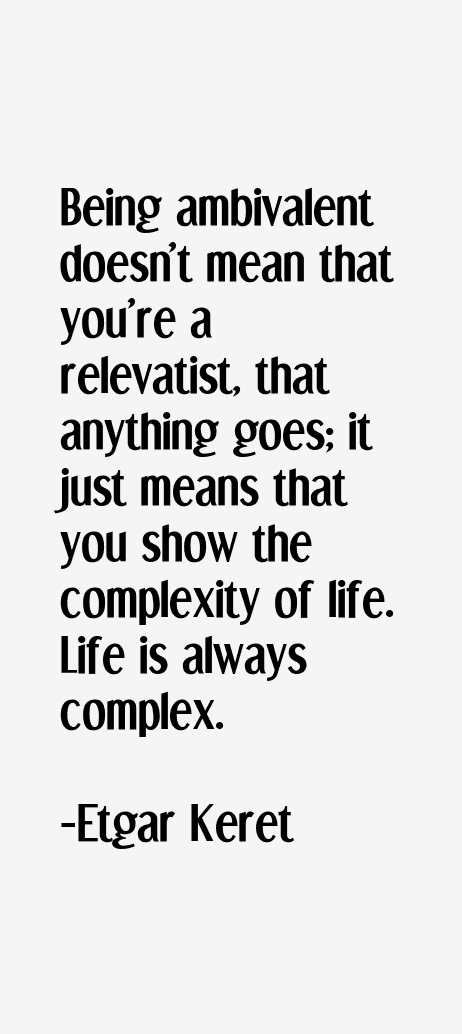
“Being ambivalent doesn't mean that you're a relevatist, that anything goes; it just means that you show the complexity of life. Life is always complex.”
“I tried once in my life to write a novel. I had written something like 80 pages of it when my laptop got stolen. When I told people this, they acted as if something tragic had happened, but I kind of felt relieved, grateful to the thief who saved me from another year of something that felt more like homework than fun.”
“When I write a story, I have no idea what I'm doing. All I know is that I want to share something with my readers. The whole idea of writing is this place where you lose control, where you're irresponsible - it's a very liberating place.”
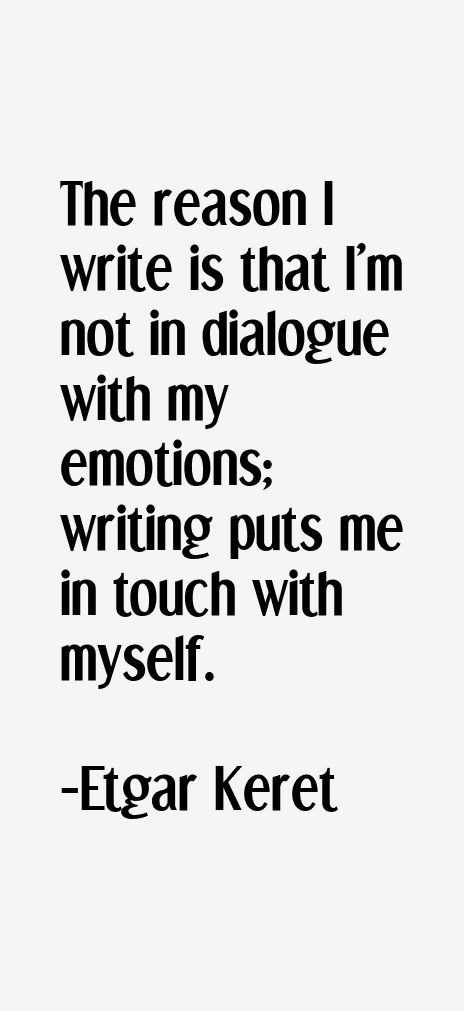
“The reason I write is that I'm not in dialogue with my emotions; writing puts me in touch with myself.”
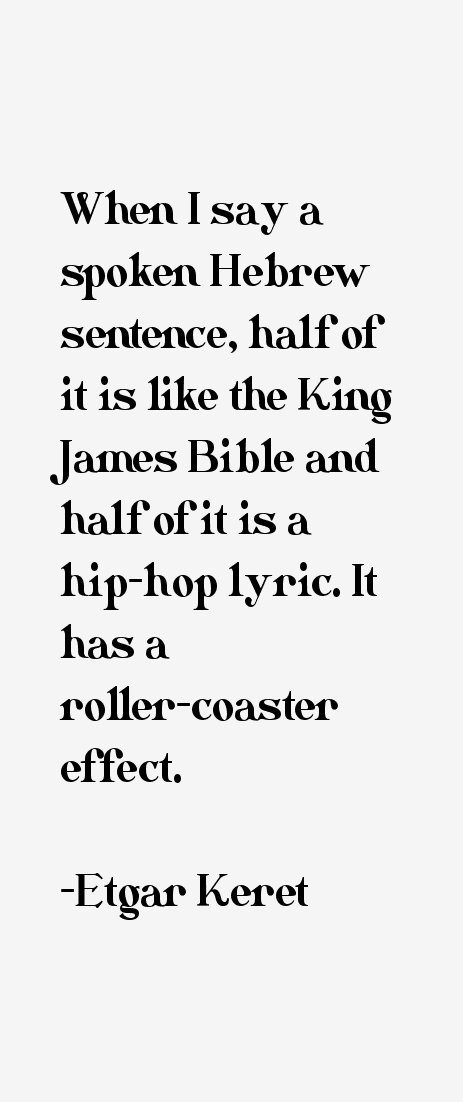
“When I say a spoken Hebrew sentence, half of it is like the King James Bible and half of it is a hip-hop lyric. It has a roller-coaster effect.”
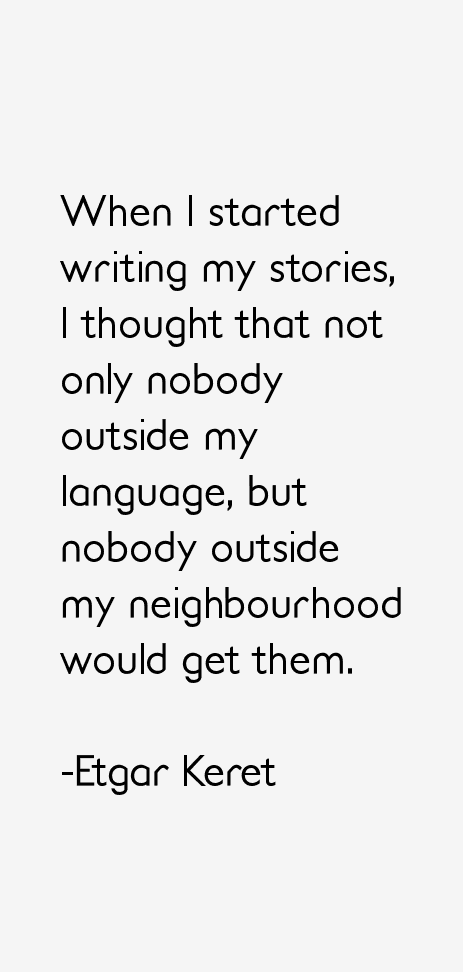
“When I started writing my stories, I thought that not only nobody outside my language, but nobody outside my neighbourhood would get them.”
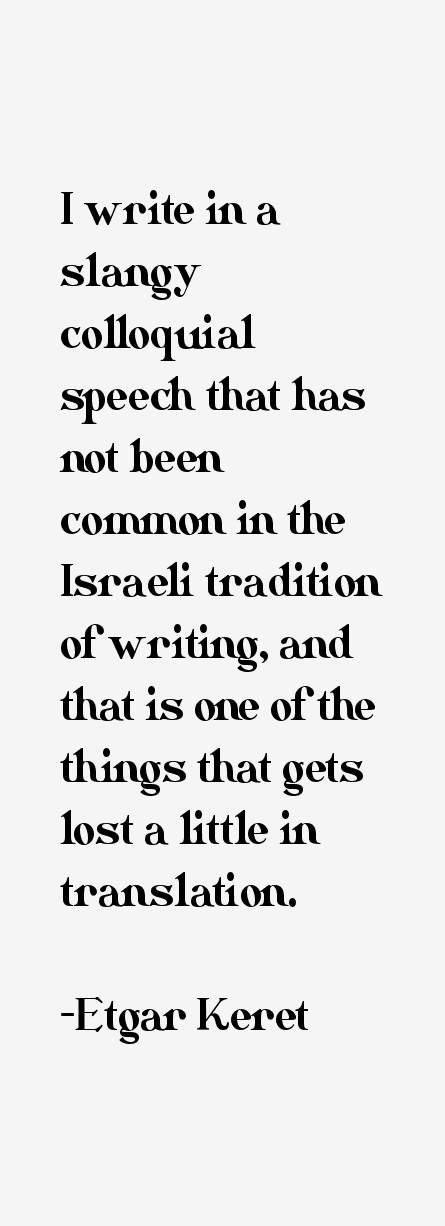
“I write in a slangy colloquial speech that has not been common in the Israeli tradition of writing, and that is one of the things that gets lost a little in translation.”
“In Israel, there is this reduction of the political discourse to something that is very limited. It's as if you have that pitch that only dogs can hear. Sometimes I feel I speak at such a pitch that very few people around me communicate with what I'm saying.”
“Sometimes, when you are in a really constrained situation, it makes you more focused about what you want to say and where you're heading. The most beautiful love poems that were ever written are sonnets, composed in a very constraining form.”
“Generally, all my life, I have had strong friction with life - I was a problematic soldier, I was kicked out of the army, I was in fights. There was something about writing that was a way of experimenting with this emotion.”
Etgar Keret Quotes Rating
No Ratings Yet
Leave A Comment
























